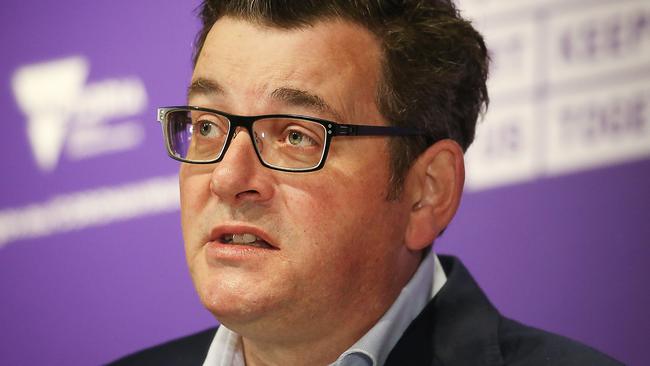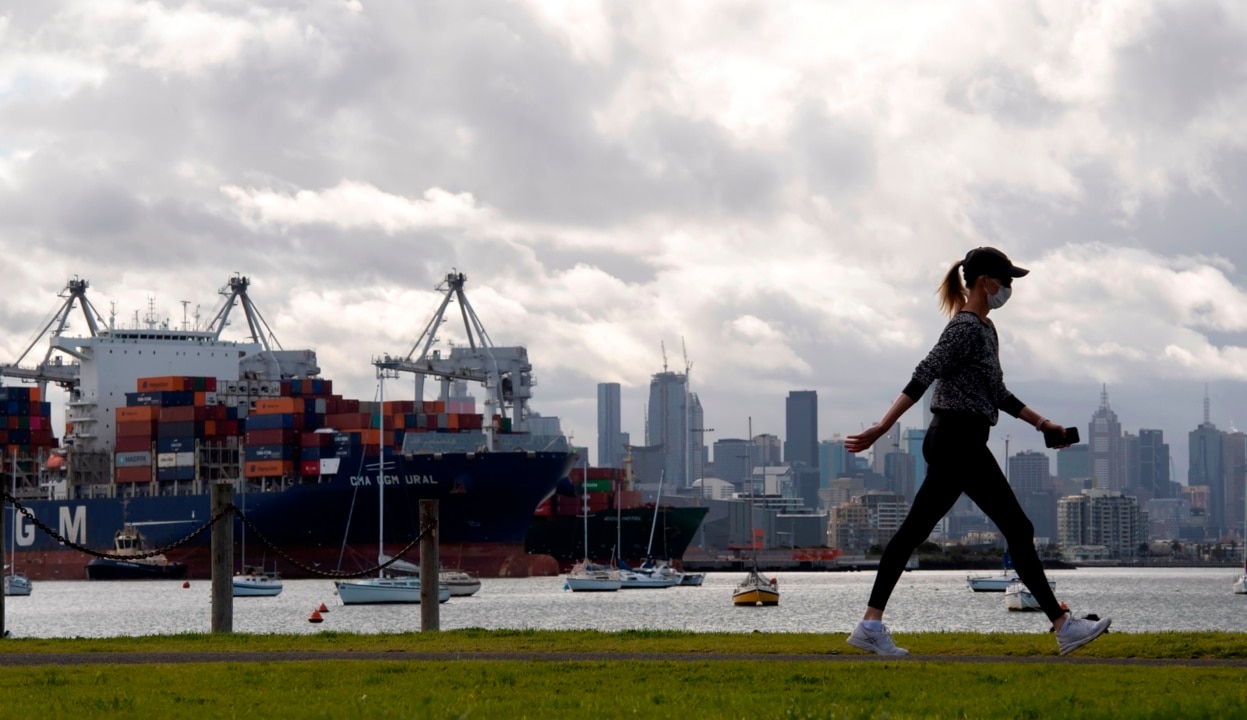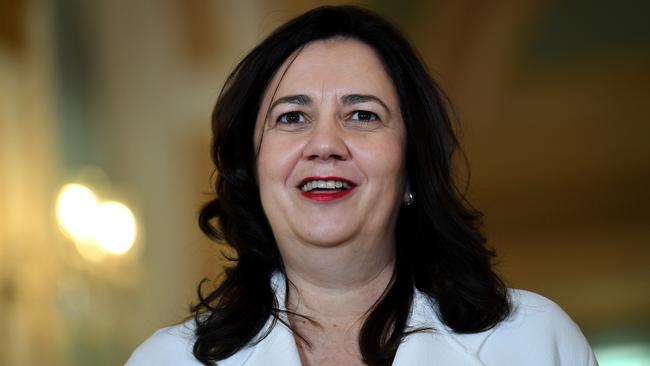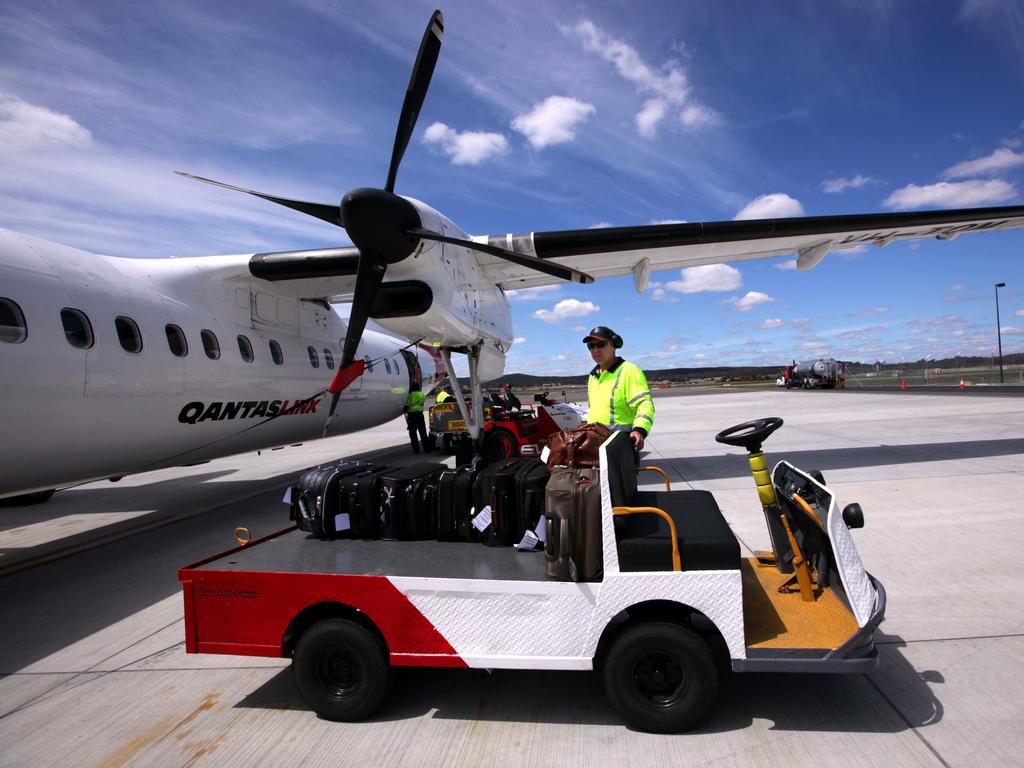
“Emergencies have always been the pretext on which the safeguards of individual liberty have been eroded,” wrote Friedrich Hayek at the height of the Cold War. “And once they are suspended it is not difficult for anyone who has assumed emergency powers to see to it that the emergency will persist.”
The rolling state of emergency the Premier intends to extend for an unprecedented 12 months grants the Victorian Chief Health Officer extraordinary powers to intrude into private lives.
He can authorise police to enter any premise without a warrant, where they can search, seize, destroy or dispose of anything they care. He can force any person or group to enter, not to enter, to remain at, or to leave, any particular premises.
The state of disaster provisions, which can be imposed by the Premier almost on a whim, give the Police Minister power to suspend legislation, take possession of property and restrict movement.
The patience of Australians in the face of the sacrifices they have been making is both admirable and troubling. On one hand, it is a tribute to our civic-minded virtues; on the other it hints at an indifference to the safety of our inherited freedoms.
The lockdown measures in their present form infringe the private rights of citizens to such a monstrous extent that it should never have been allowed out of the policy lab. Regulations that rely on coercion rather than consent are unsustainable, unreasonable and ultimately unsafe.
Perhaps we have been staring at our locked-down navels too long to realise how far we have gone. No other democratic nation, with the exception of New Zealand, has applied so much coercion to control so few cases.
If Victoria were America’s 51st state, it would be in equal last place with Vermont ranked by the number of cases per capita.
Arizona sits 45 places higher with approximately 2800 infections per 100,000 to Victoria’s 271. Like Victoria, it didn’t have a first wave to speak of, but has recently registered a surge in transmission, albeit 10 times higher than Victoria’s. As in Victoria, the new cases have peaked and the worst appears over.
Yet there is a vast difference in the harshness of restrictions.

Phoenix International Airport remains open and is receiving about 20 interstate flights an hour with no blanket quarantine. Tourism is encouraged.
Social distancing measures for businesses are mainly recommendations rather than regulations. Republican Governor Doug Ducey gives press conferences weekly, not daily. He uses them to calm anxieties rather than inflame them.
Ducey’s instinct is to let people go about their business and leave businesses free to trade unless there is compelling evidence to stop them.
Victoria, by contrast, operates under Catch-22, granting citizens “a right to do anything we can’t stop them from doing”. Like the characters in Joseph Heller’s novel, Victorians can be accused of putting their traditional rights of freedom and independence at risk by daring to exercise them.
On top of that, they suffer the incompetence that characterises every bureaucratic system, whether it is the US military in wartime, the emergency rule of a collectivist Australian premier, or the erection of a Checkpoint Charlie on the banks of the River Tweed.
If, as Annastacia Palaszczuk claims, the border is closed on medical advice, she might care to answer the following: How many lives will the Premier save by shutting down Queensland’s borders? On the advice of which doctors did she act? Were they medical doctors perchance, or doctors of spin?

Whoever is advising Palaszczuk, it’s certainly not the doctors who tried to fly a critically ill baby and his mother from Lismore to the Royal Brisbane and Women’s Hospital. The mother’s presence was imperative to protect the child’s immunity, doctors said. But rules are rules. Mum was refused permission to travel and comforts her child via Facebook.
“People living in NSW have NSW hospitals,” says Paluszczuk. “In Queensland we have Queensland hospitals for our people.”
There are exceptions. Late last week three foreign sailors with COVID-19 were ferried from a cargo ship to Townsville Hospital for treatment. Two crew members on another bulk carrier were awaiting transfer to Mackay.
Queensland grants quarantine exemption in exceptional circumstance, like those of Dannii Minogue and Anthony Seibold, coach of the Brisbane Broncos. But there was no reprieve for a pregnant mother in Ballina carrying twins in need of urgent hospital treatment. In normal times she could have driven to Brisbane in two hours. Instead she had to wait 16 hours to be flown to Sydney.
This is how things work when the bureaucrats take charge. Heartless one day, haywire the next. Without the checks and balances of democracy, mistakes are not checked and hubris flourishes.
The absurdities would make a cracking black comedy if we weren’t living them every painful minute. And for what? It is possible closing our internal borders might save us from a few infections. There is a chance, if only slight, it may even save a life or even two.
Yet the mean-spirited manner in which these measures are enforced grates with our principles, risking things we should never be forced to sacrifice. We might have been more inclined to take the path of Arizona, and indeed most US states, where the kind of measures introduced here would have been unthinkable.
Arizona is paying its own price. Its COVID death toll on Saturday was 4688. Victoria, with a similar-sized population, has registered fewer than 400 deaths. Some, however, may view the loss of life in Arizona as an acceptable price for the maintenance of freedom.
Nick Cater is executive director of the Menzies Research Centre.








Whatever the threats posed by COVID-19, they are dwarfed by the dangers of trifling with tyranny, as Daniel Andrews is doing right now.